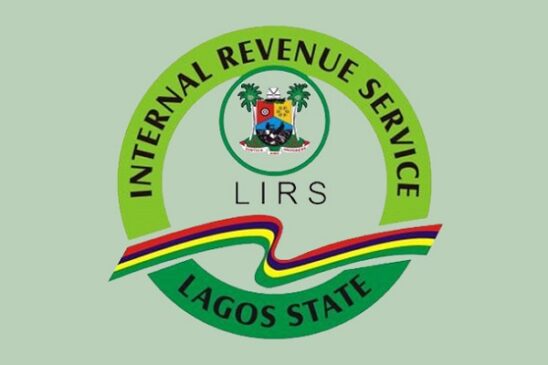Tax Tribunal exonerates Employers for Tax on Employees’ VPC
The Tax Appeal Tribunal ,TAT, held that the Lagos State Internal Revenue Service (LIRS) could not hold employers accountable for taxes arising from withdrawals of Voluntary Pension Contribution (VPC) of their employees.
This decision was reached in the case between Nexen Petroleum Nigeria Limited vs Lagos State Internal Revenue Service (LIRS).
In coming to the term with this, the Tribunal reckoned that the employer had no further obligation to account for subsequent dealings by the employees but Section 10(4) specifically requires for tax on such withdrawals to be accounted for at source.
That is upon withdrawal. Section 113 of the Pension Reform Act further imposes a duty of confidentiality to the employees by Pension Fund Administrators or Custodians.
According to the Tribunal, VPCs are tax-exempt under the law except when withdrawn within five years from the date of contribution.
The Court further held that employers are not under any obligation to monitor the withdrawal of VPCs within the period and thus should not be accountable for any taxes arising therefrom.
Recalled that in 2018, the LIRS issued additional notices of assessment to Nexen following a tax audit of the Company’s 2013 and 2014 Years of Assessment (YOAs).
Nexen objected to the additional assessment notices and upon receipt of a Notice of Refusal to Amend (NORA) from the LIRS, the company instituted an action at the TAT.
The crux of the issues before the TAT was whether Nexen was liable to remit tax arising from the operations of its employees’ VPCs to the LIRS.
Nexen contended that pension contributions are tax exempt under the law and it had discharged its statutory duty to the LIRS by deducting, remitting and filing PAYE tax returns of its employees.
Nexen further argued that the responsibility to recover any additional income tax from its employees should automatically revert to the LIRS.
On the other hand, the LIRS posited that as long as the employees’ VPCs arise from part of the emolument of the employees, the obligation to deduct and remit taxes arising from the VPCs withdrawn remains with the employer.
The Tribunal, however, ruled in favour of Nexen that the Company is a statutory agent of the LIRS with the obligation to deduct, remit and file PAYE returns of its employees.
Thus, the Tribunal stated that Nexen had fulfilled all its statutory obligations and was not under any additional obligations to account for its employees’ further dealings with their VPCs.
In addition, the Tribunal held that the responsibility to deduct any further tax on the income of employees no longer lies with Nexen after the initial deduction and remittance from the employees’ emolument.
Read Also: Lafarge WAPCO: Investment Firm Sets 12-month Price Target at N26
The Tribunal, in interpreting Section 10(4) of the Pension Reform Act (PRA) and Section 20(1) of Personal Income Tax Act (PITA) stated that VPCs are exempted.
However, this exemption does not apply where such VPCs are withdrawn within five years from the date of contribution.
Andersen Tax LP reckoned that this ruling implies that the LIRS cannot hold employers accountable for any taxes arising from subsequent VPC withdrawals of their employees.
In 2017, the LIRS had communicated in its Circular on “Tax Relief on Voluntary Pension Contribution”, that it would rely on Section 81(2) of the PITA to recover such taxes on VPCs from employers.
However, there have been some concerns as to the legality of this approach. Until the Federal High Court reaches a contrary decision, it would be unlawful for the LIRS to assess employers for VPCs withdrawn within 5 years.
Instead, the LIRS would be expected to assess the employees in Nigeria.
The Tribunal held that the company fulfilled its statutory obligations by paying over all the pension contributions (VPC inclusive), to the Pension Fund Custodian, specified by the PFA.
“This decision is also in line with the provisions of Section 10(4) of the PRA that VPCs are to be entirely exempt from tax at the point of withdrawal, except such withdrawal is made within five years from the date of contribution”, Andersen stated.
In its review, PwC stated that based on the judgment, VPCs are tax deductible for PAYE but are taxable where withdrawn earlier than allowed.
According to the firm, the judgment may be well received by employers, who have until recently been asked to account for liabilities resulting from the withdrawal of VPCs.
However, the tax authorities can still challenge artificiality of withdrawals that are done for the sole purpose of avoiding tax, where there is a collusion with the employer.
PwC however noted that PAYE is an advance payment of income taxes so employees remain responsible for PIT on withdrawals from the PFAs.
The firm said that this may take up employees’ time and effort resolving tax issues. Where the assessments become final and conclusive, the tax authorities may still appoint the employer to recover the taxes from any payment made on account of the employee in subsequent periods pending other recovery solutions.
“The state tax authorities would need to improve on the current self-assessment filing system to ensure that individuals declare income earned from all sources and the applicable tax applied to the income”, PwC noted.
The firm advice that employers and individuals should keep themselves updated on any appeals against the current ruling.
Tax Tribunal exonerates Employers for Tax on Employees’ VPC












